Healthy aging blog

The basics of protein digestibility
Protein, an indispensable part of our diet, has multiple roles in the body – particularly in aging for growth, repair and maintaining muscle mass.
But dietary proteins are not all equal. Here are some nuts and bolts of this exquisitely complex nutrient. READ MORE

New standards earmarked for aged care
At a life stage of increasing frailty and dependence, older adults deserve to be treated with care and respect. A hallmark of a humane society.
However, a recent enquiry highlighted continued gaps in the quality of aged care. READ MORE

Enhancing nutrition and flavour in aged care food
Things are looking up for aged care. Nudging retirement and refusing to eat slop, baby boomers are spurring action.
Celebrity chef Maggie Beer is a recent inspirational voice and champion for healthier food that tastes good. Her foundation is dedicated to training cooks and chefs in aged care to prepare meals driven by “superfoods” like chickpeas, lentils and kale. READ MORE

Dispelling myths about nutrition and aging
People may be living longer, but quality of life tends to wane with aging. The burden of disease increases significantly after age 65. As a result, older adults commonly take multiple medications, further exacerbating their risk of frailty and premature death. READ MORE
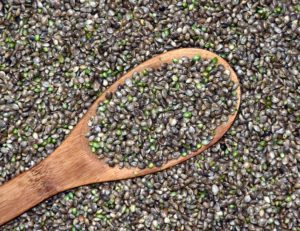
What’s hemp got to do with nutrition?
Cannabis, or marijuana, is the world’s most highly used illicit drug. But hemp – although it derives from the same species – will not cause giggle fits, big toenail fascination or insatiable pizza cravings. READ MORE
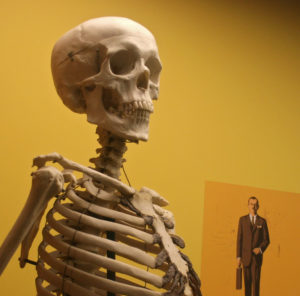
Increasing protein above recommended intakes could benefit bone health
Nature, in her infinite intelligence, has gifted us millions of different proteins that supply the music and instruments of the body’s orchestra. These proteins are assembled from twenty amino acids joined in fifty to tens of thousands of different combinations. READ MORE

Swallowing pills – a double-edged sword
Pill swallowing can be daunting. In fact, one survey revealed around 40% of adults who otherwise had no swallowing problems struggled with pills. What if, on the other hand, pills themselves make food and liquid difficult to swallow? READ MORE

Preventing loss of muscle and function in hospitalised older adults
Unless you are suffering a prolonged midlife crisis, life really does get better after 40.
We can start to enjoy the fruits of our labour, care less about what people think, and (hopefully) have life worked out. But the average person would have lost 3-8% muscle mass since turning 30, and this trend will continue each decade. READ MORE

Medicinal applications of the cannabis plant
Cannabis is popularly known for its mind-altering properties. But this controversial plant boasts abundant secret delights that are now (re)emerging following its prohibition. READ MORE

New framework identifies food safe for swallowing
Most of us long ago abandoned our childlike delight of playing with food. Watching rapturously as it flowed through our fork, kneading it into a ball, belligerently breaking it up and squishing it through our fingers. Some lucky adults get to do this for a living. READ MORE

Could Popeye have drunk coffee?
Popeye devoured spinach to make his muscles strong.
But his creators, like everyone else, were duped by a chemist’s miscalculation of this vegetable’s iron content. Could coffee have helped? READ MORE

How to identify malnutrition in older adults
Thinking of malnutrition tends to generate images of starving people in third world countries.
But malnutrition is silently affecting aging people at home. It afflicts a third of older adults admitted to hospital and over half of aged care residents – and it is often overlooked. READ MORE

How protein could prevent Alzheimer’s
Everyone becomes more forgetful with age.
People start misplacing their keys and worry that they’re losing their marbles. But that’s quite normal. When you forget what to use your keys for, that’s when you might consider a dementia test. READ MORE
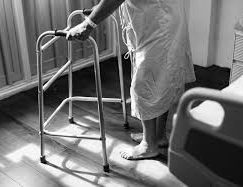
Nutrition and exercise: Preventing falls in aged care
One of our staff recently spoke with someone whose father is in an aged care facility.
They discovered he had a hairline fracture in his hip – about a week after it happened. The nurse accidentally dropped him when she was helping him out of bed, and it wasn’t reported. READ MORE

What to eat when swallowing fails
Swallowing. Most of us perform this apparently simple act many times every day without a second thought.
Yet eating and swallowing is an extremely complex procedure that recruits over thirty different nerves and muscles to move food and liquid down the correct channels from mouth to stomach. READ MORE

Could sarcopenia cause type 2 diabetes?
Aging brings rewards and challenges. It can be a fulfilling time of rest and relaxation, enjoying respite from a life of working and raising children.
It is also a time when the body starts its graceful decline. Unfortunately, this decline can bring various health problems, for instance loss of muscle mass. READ MORE
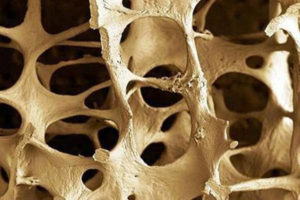
Preventing osteoporosis with protein nutrition
Like many confusing nutrition messages, some claim too much protein is bad for bone health.
What is the scientific consensus, and what does this mean for people with or wanting to avoid osteoporosis? What other nutrients are important? READ MORE

Why do we rely on lean muscle for good health?
Mary and Sylvia might not differ in body weight and appearance, but could be hiding a distinct difference.
One may have greater fat mass and the other more lean muscle. Why is this important? Lean muscle’s little known secrets. READ MORE
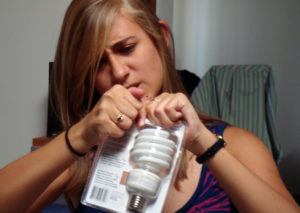
The significance of accessible food packaging.
When people think about causes of malnutrition, they might consider poor appetite, chewing difficulties or illness as likely candidates.
Yet many health professionals would know that even something seemingly trivial, like not being able to open food packaging, can be a major obstacle to eating well. READ MORE

